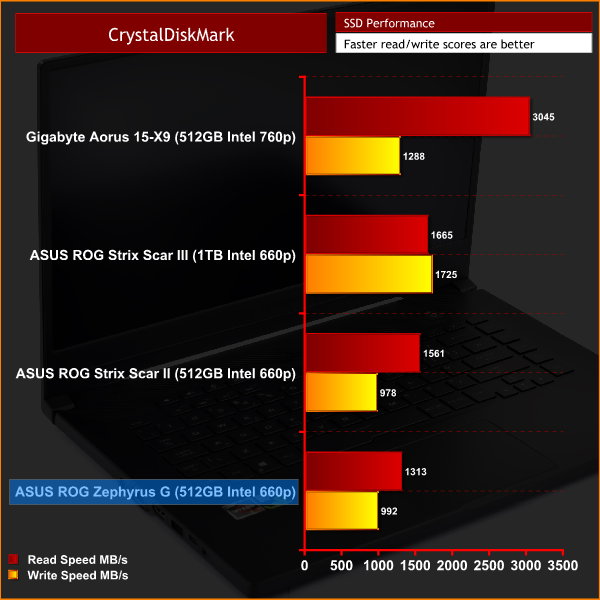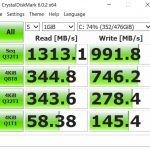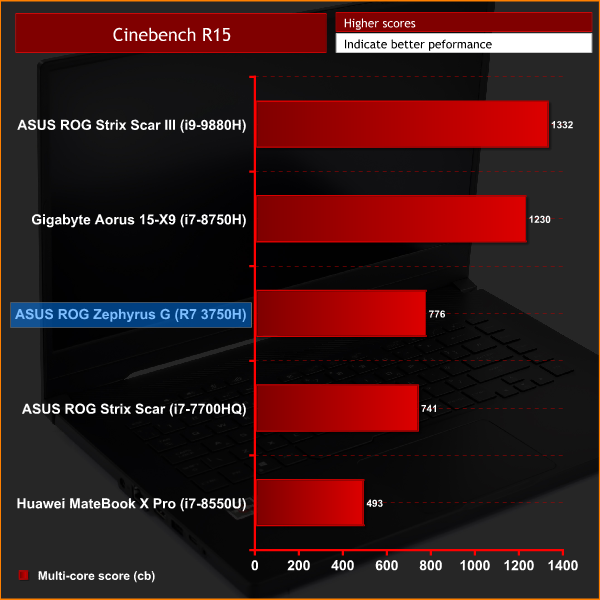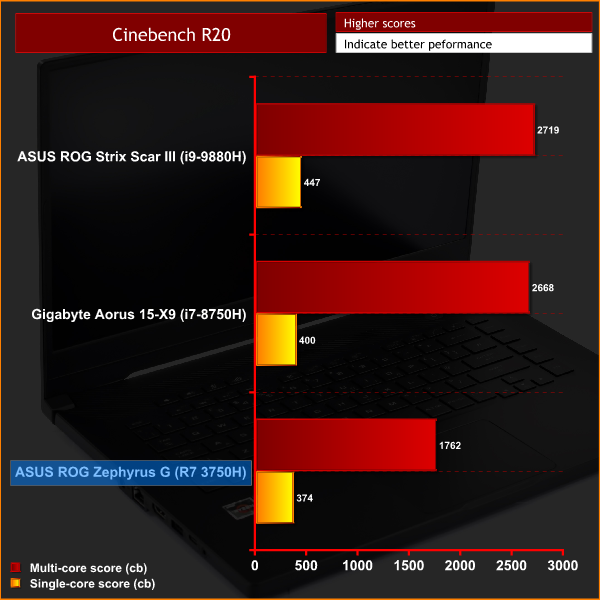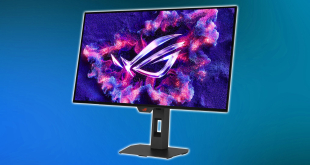CrystalDiskMark Storage Performance
CrystalDiskMark tests the raw speed of a storage device. It uses a test file to write data to or read data from the drive. We test using the default 1GB file size.
A lot of ASUS ROG machines we have reviewed recently use the Intel 660p SSD, though the 512GB model here is really not that fast for a NVMe drive. It's still faster than a SATA drive, yes, and we have to remind ourselves this isn't a high-end gaming machine.
Even then, the fact that this drive is the only storage for the machine may raise eyebrows, as we are used to seeing both SSDs for Windows, and larger HDDs for games and media libraries. ASUS told me at their event in New York that they are transitioning away from using HDDs to making SSD-only laptops, and I can see the benefit – SSDs are getting cheaper and cheaper, and 2.5in drives take up a lot of space that could otherwise be filled by a larger battery.
Still, depending on your needs and how many games you like to have installed at once, this is certainly something to note.
Cinebench R15
Cinebench R15 is an application which renders a photorealistic 3D scene to benchmark a computer’s rendering performance, on one CPU core, all CPU cores or using the GPU. We run the test using the all-core mode.
We conducted all of our laptop testing in ASUS ROG's ‘Balanced' mode – the default setting out of the box.
Having not seen a laptop with an AMD processor for a long time, I was curious to see how the Ryzen 7 3705H performed. This is a 4-core/8-thread chip, with a 35W TDP, and though its model code puts this as a ‘Ryzen 3000' product, it is based on Zen+ rather than Zen2.
Our first test, Cinebench R15, gives a score of 776, which is not at all bad for a mobile quad-core processor. This is slightly ahead of Intel's older i7-7700HQ – also a quad-core chip – but as expected it falls well behind Intel's newer 6 and 8-core parts.
Cinebench R20
Cinebench Release 20 reflects the overall advancements to CPU and rendering technology in recent years, providing a more accurate measurement of Cinema 4D’s ability to take advantage of multiple CPU cores and modern processor features available to the average user. We run the test using the all-core and single-core CPU modes.
Cinebench R20 is a recent release so we are still building up our comparison data for this new benchmark. Here, the Ryzen 7 3750H is about 34% slower than the i7-8750H in terms of multi-core performance, though single-core performance is within 7% of that Intel chip.
 KitGuru KitGuru.net – Tech News | Hardware News | Hardware Reviews | IOS | Mobile | Gaming | Graphics Cards
KitGuru KitGuru.net – Tech News | Hardware News | Hardware Reviews | IOS | Mobile | Gaming | Graphics Cards


